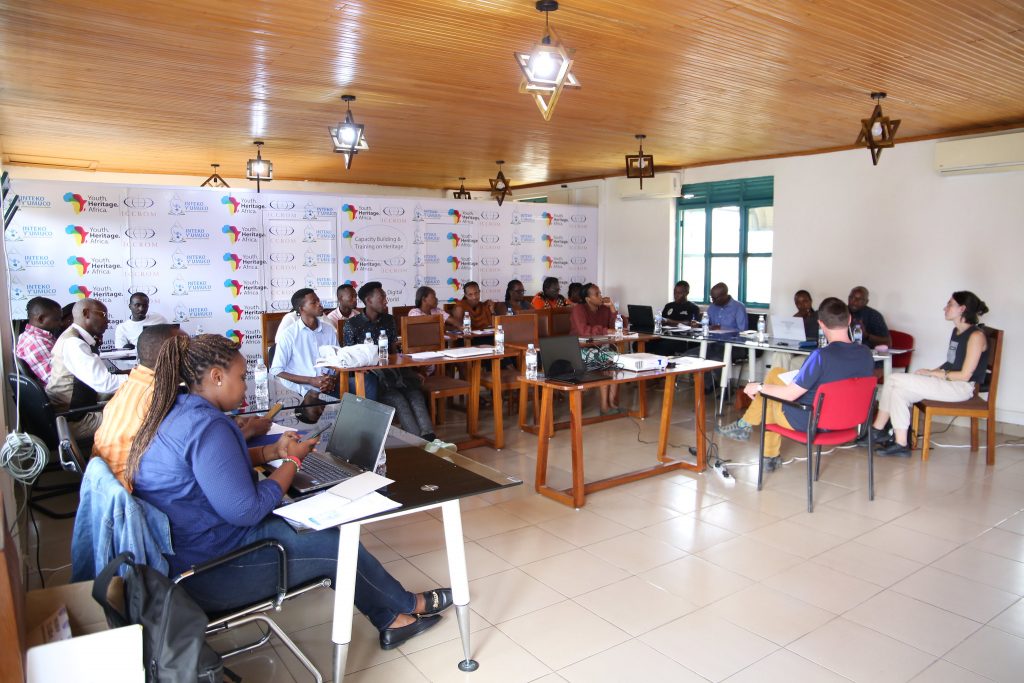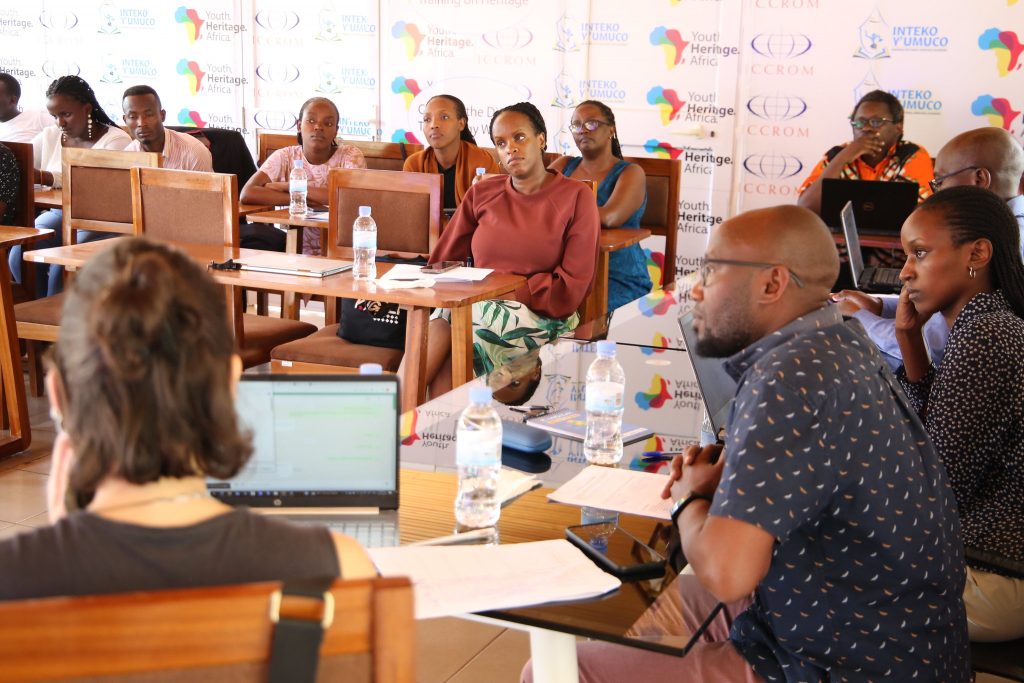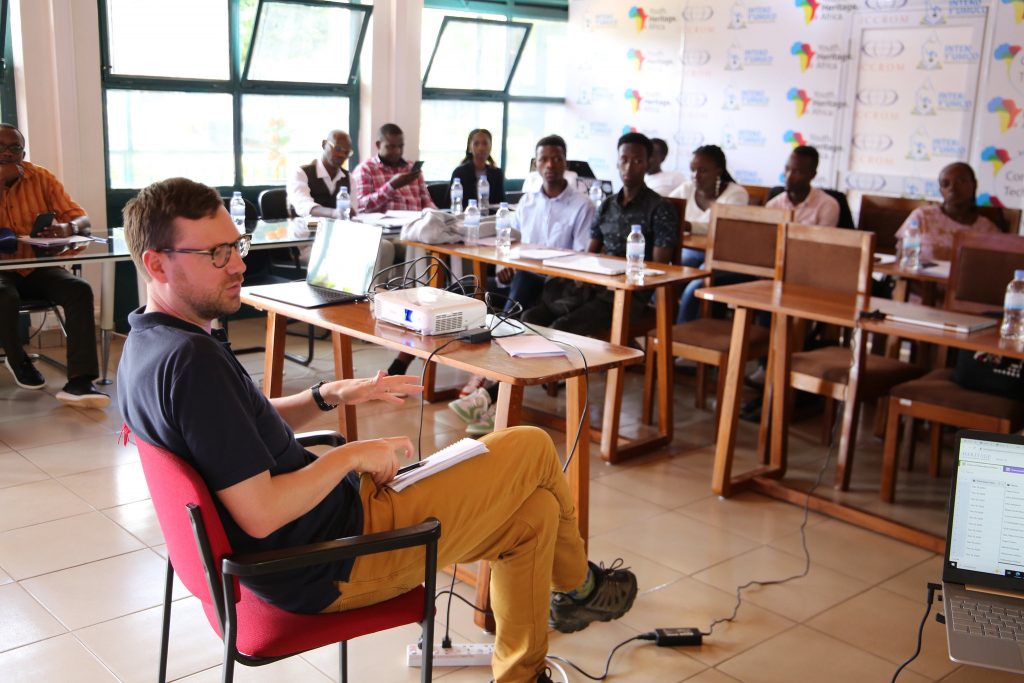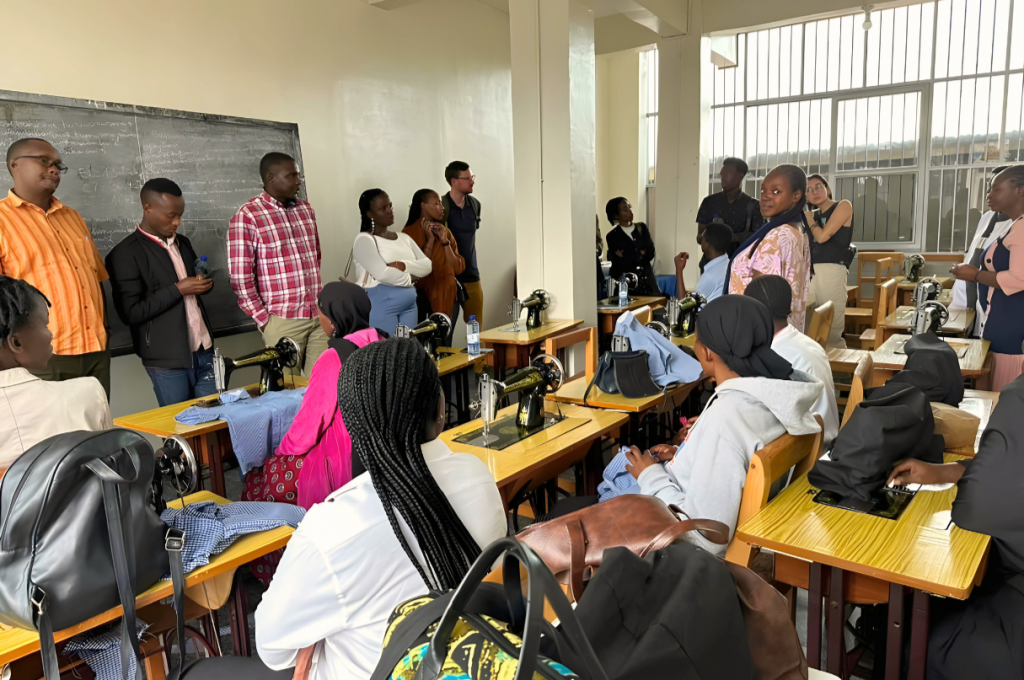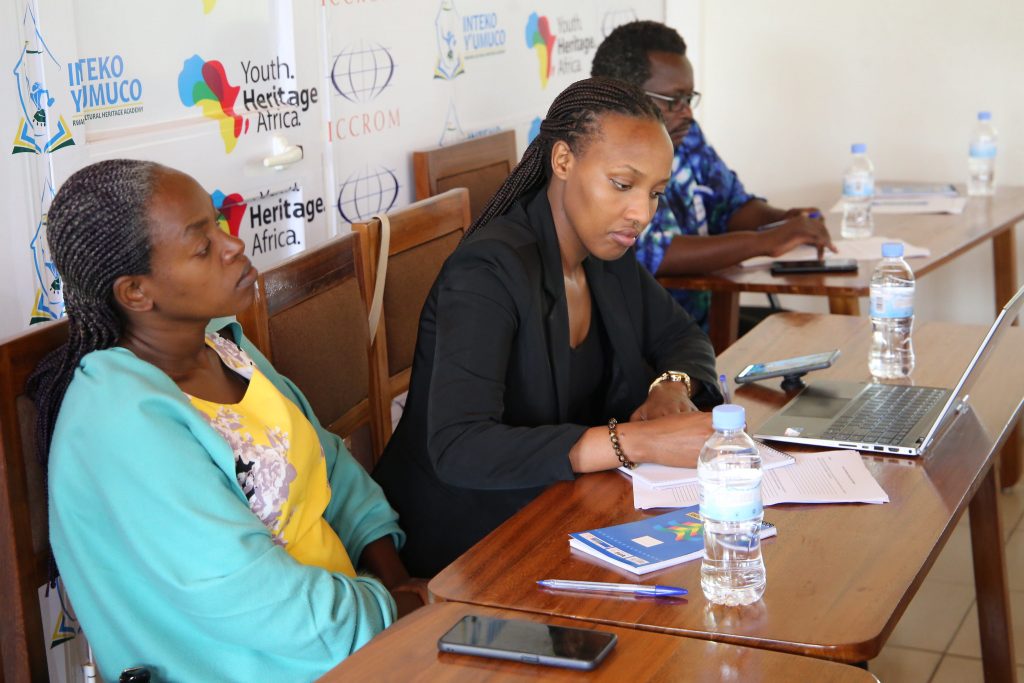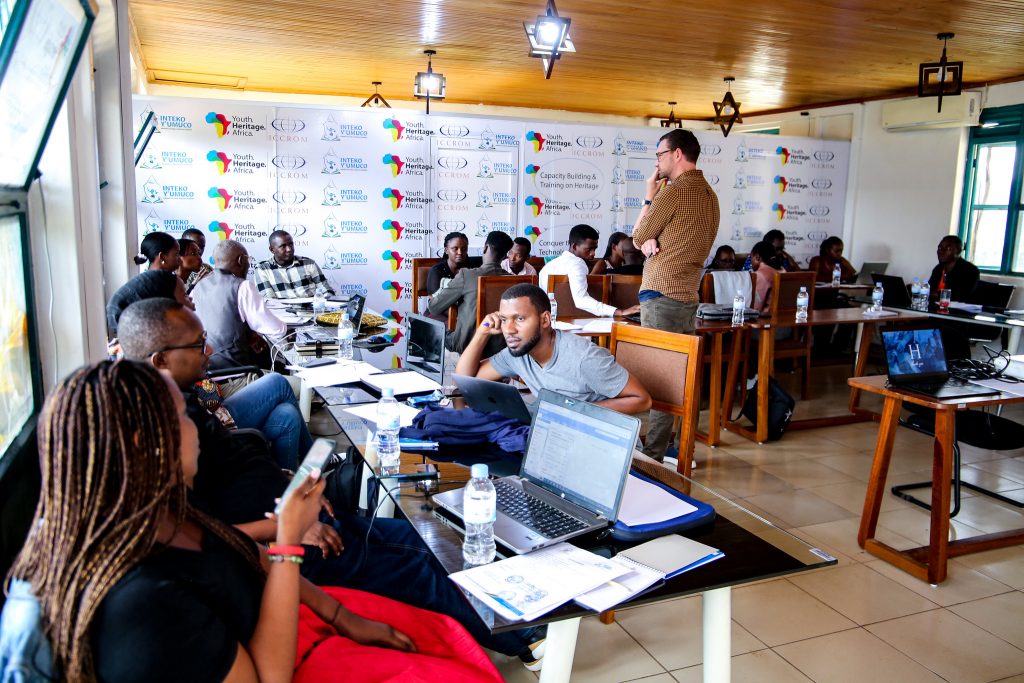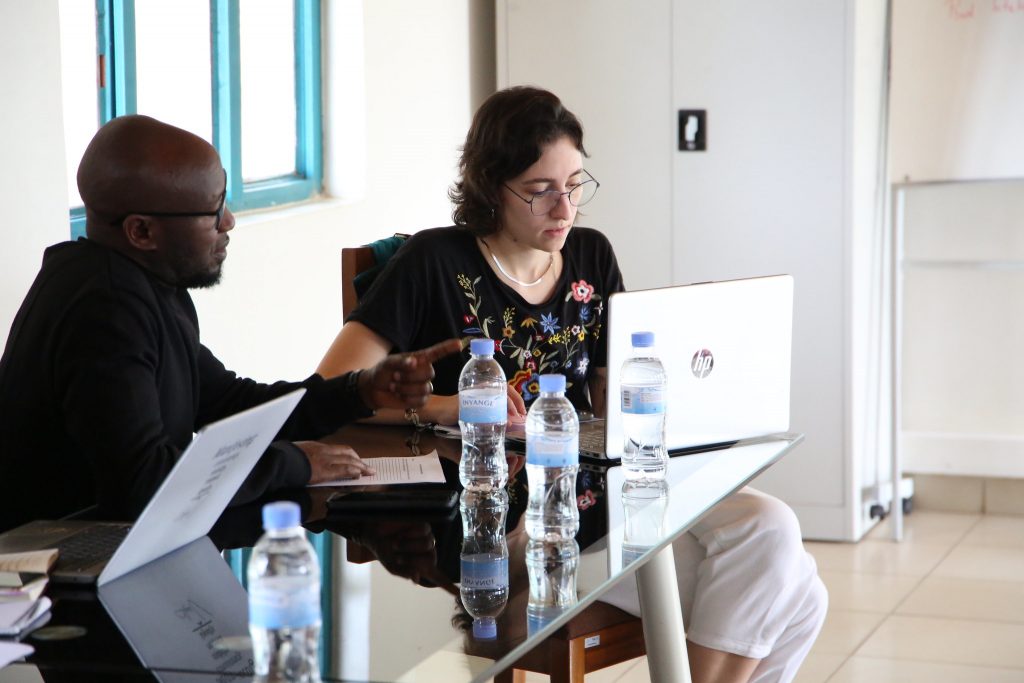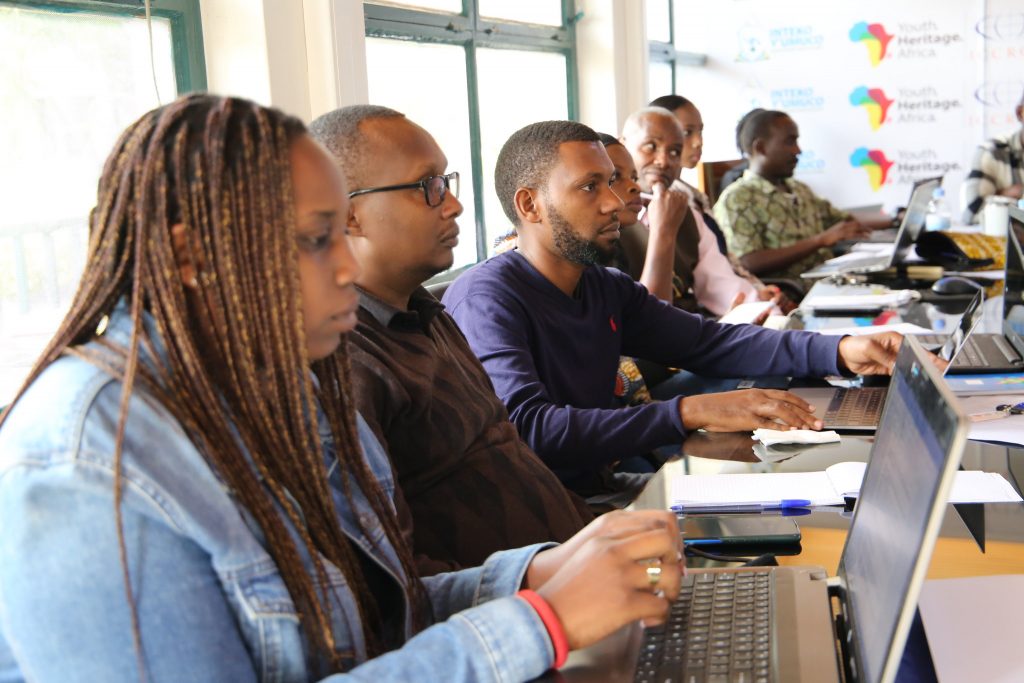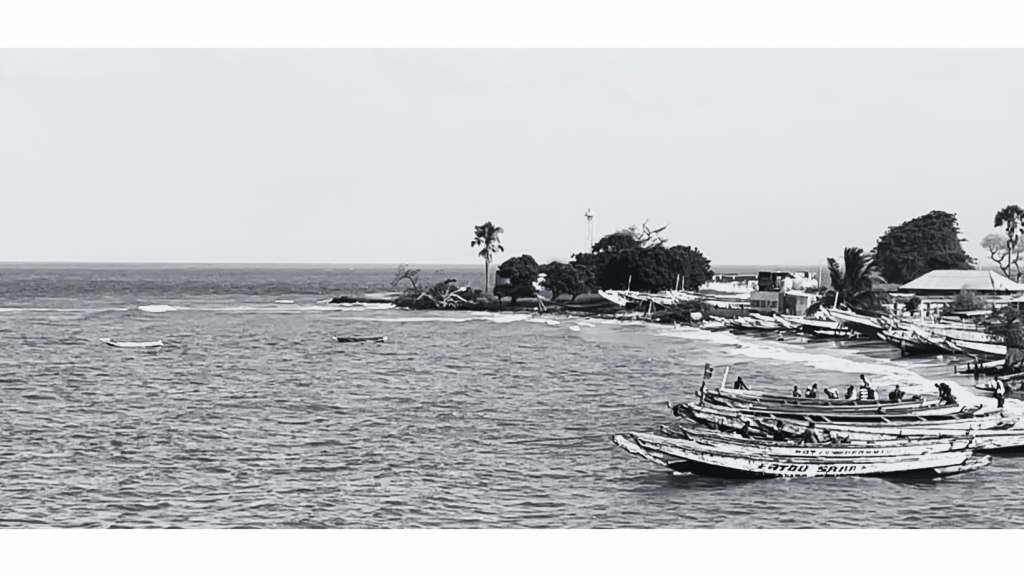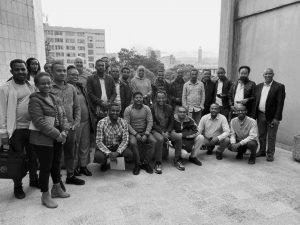Tag Archives: Africa
26 new recipients of small grants for Africa
 HERITΛGE is very pleased to announce another 26 recipients of our HerMaP Africa small grants for organizations, groups, and individuals working with heritage in Africa. The small grants initiative is generously supported by the Mellon Foundation’s Humanities in Place program.
HERITΛGE is very pleased to announce another 26 recipients of our HerMaP Africa small grants for organizations, groups, and individuals working with heritage in Africa. The small grants initiative is generously supported by the Mellon Foundation’s Humanities in Place program.
In this second round of the program, over $333,000 has been awarded to projects that focus on the protection and promotion of local cultural and natural heritage and aim to contribute to the socio-economic development of local communities and beyond. HERITΛGE disbursed over $220,000 to 19 heritage projects in the first round of the small grants initiative earlier this year. By the end of 2024, a total of $1 million will have been awarded in small grants to African heritage projects.
“We are extremely pleased to announce this second round of small grant awards for African projects. We are already seeing what the scheme is doing to unlock the potential of heritage in Africa and make a difference for the development of local communities through the work undertaken by the first 19 grantees,” said HERITΛGE Director, Dr. Evangelos Kyriakidis. “Heritage has the ability to empower and we are already seeing local communities using our grants, in partnership with local organizations, to support sustainable development and safeguard local heritage for generations to come.”
The list of newly approved grants includes heritage projects from Algeria, Benin, Burkina Faso, Cameroon, the Democratic Republic of Congo, Ethiopia, The Gambia, Ghana, Kenya, Niger, Nigeria, South Africa, Sudan, Tanzania, Togo, Uganda, and Zambia.
To receive a small grant from the HerMaP Africa program, applicants have to demonstrate that their project has a lasting impact, develops capacity, builds networks, strengthens local skills, and has a strong, measurable impact for the protection of heritage and the benefit of local people.
A full list of the projects that have been awarded small grants can be found here.
Applications are still being accepted for the next round of small grants for heritage projects. To find out more and apply, visit our website: https://heritagemanagement.org/
About HerMaP-Africa: Made possible by a $5 million grant from the Mellon Foundation’s Humanities in Place program, HerMaP Africa aims to strengthen HERITΛGE’s Africa programs, fund initiatives that link heritage with socio-economic impact, develop the capacity of local organizations, and help them preserve African heritage and culture.
About The Andrew W. Mellon Foundation: The Andrew W. Mellon Foundation is the largest supporter of the arts and humanities in the United States. Since 1969, the Foundation has been guided by its core belief that the humanities and arts are essential to human understanding. The Foundation believes that the arts and humanities are where we express our complex humanity and that everyone deserves the beauty, transcendence, and freedom that can be found there. Through its grants, it seeks to build just communities enriched by meaning and empowered by critical thinking, where ideas and imagination can thrive. Learn more at mellon.org
HERITΛGE keeps up the pace of the HerMaP Gambia Program for cultural heritage
HERITΛGE is happy to share two important actions of its HerMaP Gambia Program, an introductory workshop tailor-made and delivered for officials of The Gambia’s National Environment Agency (NEA) and its participation to the 1st International Conference on Responsible Tourism Practices and Cultural Heritage Management. HerMaP Gambia is co-funded by the European Union to support the country’s heritage sector so that it can serve as a catalyst for social and economic development.
Within the framework of the program, in late January, 18 officers and managers from the NEA attended an Introduction to Heritage Management workshop, delivered by HERITΛGE’s director Dr. Evangelos Kyriakidis. The training equipped participants with a foundational understanding of heritage management principles while discussions on environmental impact assessment and heritage impact assessment provided valuable insights into safeguarding cultural and natural heritage, laying the groundwork for comprehensive heritage management strategies.
“In a fast-developing country such as The Gambia, it is important that decision-makers are aware of the importance of heritage for creating sustainable economic growth and of heritage management fundamentals,” said Dr. Kyriakidis.
The workshop was then followed up by the launch on January 24-25 of the 1st International Conference on Responsible Tourism Practices and Cultural Heritage Management, organized by the Institute for Travel and Tourism of The Gambia in cooperation with HERITΛGE, in the framework of HerMaP Gambia.
The symbiotic relationship between cultural heritage and responsible tourism was the main focus of the conference, showcasing community-driven initiatives promoting sustainability and providing valuable insights into leveraging tourism for positive impact and fostering sustainable economic development through heritage preservation.
“It is time to move on from being a paper tiger to scaling up the more active implementation of responsible tourism policy on the ground”, said ITTOG chairman and founder Adama Bah.
The conference featured a number of workshops and training opportunities that also highlighted examples from successful heritage management endeavors including the Janjanbureh Kankurang Festival, The Ninki Nanka Trail, various HerMaP initiatives, and more.
Keynote speakers, apart from Dr Kyriakidis included ITTOG’s Dr. Adama Bah, Baba Ceesay (HERITΛGE/HerMaP Gambia), Dr. Harold Goodwin (International Tourism Partnership), and Lucy McCombes (Responsible Tourism Expert).
HERITΛGE funding through its HerMaP Gambia program also enabled the participation of two nominated Gambian parliamentarians, Honorable Omar Jatto Jammeh and Honorable Alieu Baldeh.
Finally, it is worth noting that on January 23rd, HerMaP Gambia also held its steering committee and stakeholders meeting, with the participation of the National Assembly of The Gambia, NCAC, NEA, ITTOG, My Gambia, GYCC, the American Chamber of Commerce, JAYS, and a Barra VDC member.
About HerMaP Gambia: This HERITΛGE program aims to contribute to the enhancement of the cultural, creative, and sports industries as engines for social and economic development and job creation in The Gambia. Supporting The Gambia’s heritage sector, the management of Gambian Cultural Heritage is enhanced and valued. HerMaP Gambia is co-funded by the European Union and is being realized in partnership with Gambia’s National Centre for Arts and Culture (NCAC).
Empowering Communities: Innovative Workshops on Community and Economic Development in Rwanda
HERITAGE’s Dr Paul Burtenshaw, an expert in heritage economics, heritage tourism and how cultural heritage supports sustainable and community development, conducted two workshops on Community and Economic Development in Rwanda last month, from the 13 th -15 th and the 16 th -18 th November. The workshops are part of our HerMaP Africa initiative, kindly supported by the Mellon Foundation’s Humanities in Place program. They were produced by HERITΛGE’s Rwanda programs Manager, Eirini Oikonomidi.
The first workshop (13 th – 15 th November) bought together 26 heritage and tourism practitioners in a venue provided by RCHA (Rwanda Cultural Heritage Academy) in Kigali: the Kandt House Museum. Half the participants were from the RCHA and the other half from the RCTA (Rwanda Community Tourism Association). The building itself was an early 20 th century German colonial administrative centre but has since been renovated (2004) and houses a museum of Natural History as well as an exhibition (since 2017) detailing the history of Rwanda before and after German colonisation.
The second workshop (16 th -18 th November) was conducted at Red Rocks cultural centre in Musanze district in the Northern Provenances. It trained 13 members of the RCTA, most of whom aged under 30 years old.
This is the first year HERITΛGE is offering the Community and Economic development workshop in person and online. The workshop has three main objectives:
- To provide the attendees with a firm understanding of the motivations for mobilizing cultural resources for economic benefit. At the same time acknowledging the limits of that mobilisation and how economic impacts are measured and communicated.
- To help attendees develop a plan for economic benefits: focussing on selecting strategies, setting goals and making judgement calls.
- Enabling attendees to implement a complete economic development strategy in their own locations.
On one day of the Kigali workshop, the participants visited the NWC (the Nyamirambo Women Centre) which was a great insight into the work of a local community-focused NGO. The NWC works to promote and empower women through capacity development and employment. At the moment the NWC employs 50 women as seamstresses in a self-sustaining project in which profits are used to fund further initiatives. At the Musanze workshop our hosts, Red Rocks, also engage with promoting the heritage and economies of local communities. It was a valuable experience to see how they worked.
All in all, both workshops were extremely enjoyable, and we look forward to seeing how all 39 participants now come to incorporate their new skills and knowledge into local projects.
HERITΛGE opens new office in The Gambia
The Heritage Management Organization (HERITΛGE) is happy to announce the opening of its local office and training centre in Barra, in The Gambia’s North Bank Region. The new office, part of HERITΛGE’s HerMaP Gambia Program that is co-financed by the European Union, opened its doors officially on October 27th.
“The launching of this brand-new office will help to further achieve the objectives of the HerMaP Gambia program,” said Enrica Pellacani, Head of Cooperation for the European Union Delegation in The Gambia. Pellacani noted over the past two years, the EU and HERITΛGE have been collaborating and empowering civil society organizations as essential partners in promoting social development, inclusive growth, and sustainability within the cultural and creative industries.
“Over 250 people from the heritage and tourism sectors, from 6 districts have received training on Community Engagement, Oral History, Museum Redesign, Heritage Interpretation as well as Community and Economic Development,” the official added, noting that as part of the EU-funded program, over 30 heritage managers were also trained to serve as trainers and thus “help manifest a creative wave that will enable The Gambia to preserve its heritage and leverage it to create great quality jobs for its youth”.
“Opening up our office in The Gambia is a very important development for us…everything we do is always centered around working with local communities,” said HERITΛGE Director, Dr. Evangelos Kyriakidis. “We hope that this office is more than a workplace or a training location. For us, this is a place that should be alive, engaged, and relevant to the whole community and ultimately to the whole country,” he added.
Mamat Sallah from The Gambia’s National Centre for the Arts and Culture, in partnership with which the HerMaP Gambia program is being realized, pointed out that “our heritage connects us with our roots. It is a treasure of knowledge waiting to be unlocked and shared with the generations still to come.”
“The Heritage Management Organization Office has been established with the simple ambition to train heritage managers to be the guardians of our collective memory and safeguard our historical treasures and to promote appreciation of the rich tapestry of our culture” he added.
A number of esteemed guests attended the opening and addressed participants, including the Alkalo of Barra, Dr. Adama Bah, Director of ITTOG (Institute of Travel and Tourism of Gambia), Amadou Danso from the Jufureh Albreda Youth Society (JAYS). Aba Hydara (Barra Community Committee Member), Ismaila Sambou, Director of GYCC (Gambia Youth Chamber of Commerce), Ebrima Krubally form the Wassu Stone Circle Association, Fatoumatta Jatta representative of the Crafts Market Federation, HERITΛGE Focal Representatives Malick Kujabi, Khadijatou Badgie, and Ebrima Jammeh, Lumana Kamashi, Development Cooperation / International Aid Officer of the EU Delegation in The Gambia, and Representatives of Geniere, Janjanbureh, Basse, and the greater Banjul area.
To celebrate the opening of this brand new facility and showcase the region’s cultural heritage, the local community put together a dance and music performance and served local delicacies.
About HerMaP Gambia: The program is aimed at developing the business skills of heritage and cultural managers to enable them to establish and better support heritage and cultural enterprises. Supporting The Gambia’s heritage sector will promote community solidarity and provide high-quality employment opportunities for local talent.
The program is co-funded by the European Union
Empowering Ethiopia’s Heritage Sector: HERITΛGE’s First In-Country Workshop
Preserving cultural heritage goes beyond the institutional practices of protecting ancient structures; it involves engaging communities, understanding shared heritage values , and building a future that respects local perceptions of the past. It is with this in mind that HERITΛGE held its inaugural workshop in Ethiopia in July, training 22 key heritage managers in Community Engagement in Heritage Management.
HERITΛGE Director, Dr. Evangelos Kyriakidis, and Xanthippi Kontogianni, Ethiopia Programs Manager, held the 3-day intensive workshop in Addis Ababa, welcoming heritage professionals representing a diverse range of stakeholders within Ethiopia’s cultural and creative industries. Among the participants were representatives from a diverse range of stakeholders including Jinka University, Madda Walabu University, the Ministry of Tourism, the Ethiopian Heritage Authority, the National Library, and various civil society organizations among them the Waku Gutu Foundation, Heritage Watch, and Save Heritage, History and Culture of Ethiopia.
The workshop is part of HERITΛGE’s program for Ethiopia, supported by the Mellon Foundation’s Humanities in Place program.
Nurturing Capacity for Community Engagement
At the heart of our Communities Engagement workshop lays a commitment to building capacity within heritage management. In an ever-evolving world, local communities are keepers of key information for the understanding of heritage while accountability for protecting their own history and values is indispensable and crucial for sustainable heritage preservation. HERITΛGE has structured the workshop to address these needs comprehensively.
Throughout the workshop discussion facilitated by Dr. Kyriakidis, participants shared examples and case studies from the Ethiopian context and explored the issues affecting the the management of cultural assets in the country, highlighting among others the challenges, needs and opportunities facing heritage managers.
Workshop Outcomes:
- A Network of Collaborators: The workshop serves as a nexus for like-minded professionals to network, share experiences, and collectively envision a future where heritage management is a catalyst for positive change.
- Diverse Perspectives: With participants from universities, government bodies, regional offices, and civil society organizations, the workshop brought together diverse viewpoints, sparking enriching discussions and cross-pollination of ideas.
- Community-Centric Approach: HERITΛGE’s emphasis on community engagement resonated strongly, setting the tone for a future where heritage sites become integral to community development.
- Concrete Strategies:Participants departed the workshop armed with practical strategies to enhance community involvement, integrate local narratives, and develop sustainable heritage management plans.
What can cultural heritage do for business in Africa?
HERITΛGE celebrated African Heritage Day on May 5th by taking part in an online webinar organized by the Women in Africa Initiative (WIA). WIA is the leading international platform for the economic development and support of African women entrepreneurs and, accordingly, the topic under discussion was whether preserving a country’s heritage assets can serve as the basis for building a successful business.
Dr. Evangelos Kyriakidis, HERITΛGE Director, and the organization’s Head of Africa Programmes, Mina Morou, both contributed to the webinar which was moderated by Oluwatoyin Adegbite-Moore, Founder & CEO of Nigeria’s SHEAFAM & TAM, a consulting business, and Executive Vice-President for Africa & Europe, for financial services company REACH HQ.
They were joined on the panel by Harriet Ng’Ok, Founder of Harriet’s Botanicals and HERITΛGE alumna, and Zaahirah Muthy, Founder OF ZeeArts Gallery, philanthropist, artist activist, and WIA Ambassador.
Adegbite-Moore kicked off the discussion by asking whether heritage can help business and how can business help heritage.
“In many ways, heritage consists of unique content, of privileged knowledge for local communities anywhere. And this privileged knowledge can become a unique selling point for business and can help business branding, business quality, etc. while at the same time, business with its products and services can actually really strengthen these heritage values and empower them,” said Dr. Kyriakidis.
Ng’Ok founded Harriet’s Botanicals, an African-sourced wellness products company, after being helped herself by her community’s traditional medicine that uses locally-found plants. She joined the discussion from Kenya.
“My idea was to bring cultural practitioners together and formalize their trade… we have grown in leaps and bounds. We now have a factory and manufacture up to 500 bottles on any given day … We are the beginning of African medicine featuring on a global platform just like other cultures, like the Chinese and the Ayurvedic are,” Ng’Ok said.
“The reason I named our first product Arorwet and maintained the name of this tree is that people in the village would begin to understand the value of the traditional indigenous trees and not cut them for firewood or for sale and would start instead to regrow them on their farms,” she added.
Below you can find out more and watch the webinar which was on the day attended by around 1000 people on the day.
ABOUT AFRICAN WORLD HERITAGE DAY: Proclaimed by UNESCO in 2015, African World Heritage Day (5 May) is an opportunity for people around the world, particularly Africans, to celebrate the Continent’s unique cultural and natural heritage. While Africa is underrepresented on the World Heritage List (African properties account for some 12% of all inscribed sites worldwide), a disproportionally high percentage (39%) of these properties are on the World Heritage List in Danger. It is therefore more urgent than ever that this irreplaceable heritage be protected and preserved for the enjoyment of future generations.
HERITΛGE is currently working to untap the potential of heritage in Africa through its Heritage Management Project – Africa (HerMaP-Africa) program which is funded by the Mellon Foundation’s Humanities in Place program and through its HerMaP Gambia program which is co-funded by the European Union.
- 1
- 2




